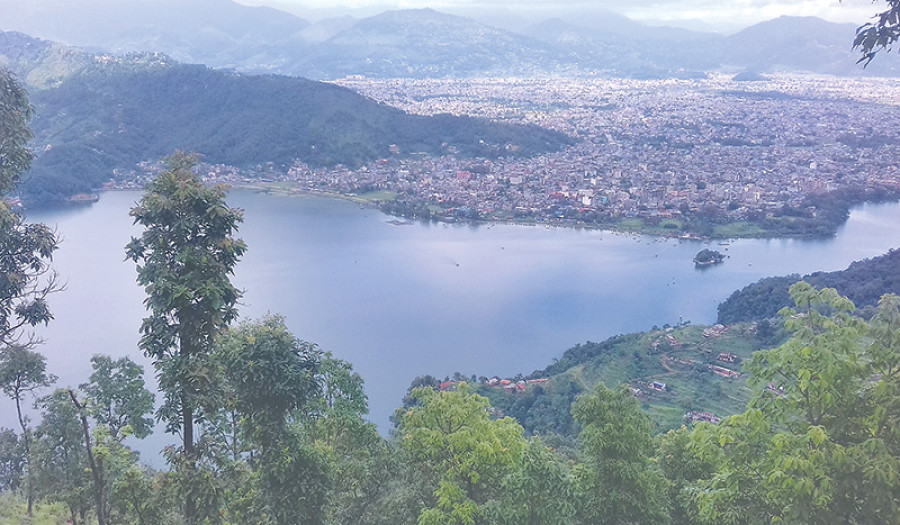National
Phewa lake encroachment: Pokhara folk welcome court’s decision
Phewa Lake conservationists have welcomed the Supreme Court’s order to immediately remove the buildings and business establishments built by encroaching the lake.
Lal Prasad Sharma
Phewa Lake conservationists have welcomed the Supreme Court’s order to immediately remove the buildings and business establishments built by encroaching the lake.
The Sunday’s ruling of the apex court has set down the lake’s area at 2,874 ropanis (6.5 sq km approx) and instructed the authorities concerned to remove all structures built within the lake’s property.
The court refers to the recommendations made by the report prepared by a commission led by Bishwa Prakash Lamichhane, former chair of city development committee of Pokhara, which was submitted to the government in May 2012.
The commission’s report at that time had mentioned that 86 hectares of the land around Phewa Lake had been converted into personal properties by illegal means, and recommended the government to terminate their ownerships. However, the recommendations made by the report were not implemented.
The Supreme Court’s ruling is expected to offer the authorities a much-needed impetus to act towards reclaiming the encroached land.
“The court order favouring the report presented by the Lammichhane Commission has been well received by the Pokhara residents who have long been advocating for Phewa Lake conservation. We expect the authorities to act on the order without any delay,” says Sundar Kumar Shrestha, a tourism entrepreneur.
Phewa Lake is a major tourist attraction of Pokhara. Over the years its size has shrunk significantly; several resorts and eateries have cropped up along the lakefront, despite the building ban within 65 metres from the lake’s edge.
The report of the Lamichhane Commission lists the names of over 1,000 individuals who had acquired properties within the lake’s immediate surrounding. These landowners include businesspersons and government officials.
According to a report prepared by the Phewa Lake Conservation and Management Office (FLCMO) two years ago, there are as many as 204 illegal structures on the lake’s property.
FLCMO engineer Mahendra Godar says lake encroachment and illegal construction of buildings have still not stopped.
“We do not know the exact number of houses and huts that stand on the lake’s property. Such is the pace of construction here,” he says. “The size of Phewa Lake was already shrinking due to natural causes, now we have human activities to contend with.”
Geologists say Phewa Lake is shrinking every year, mainly due to siltation deposited by around 50 rivulets that feed it. Until 1957, the lake covered an area of around 10 sq km. The measurement in 2007 showed that its area had shrunk to a mere 4 sq km.




 10.12°C Kathmandu
10.12°C Kathmandu.jpg)















